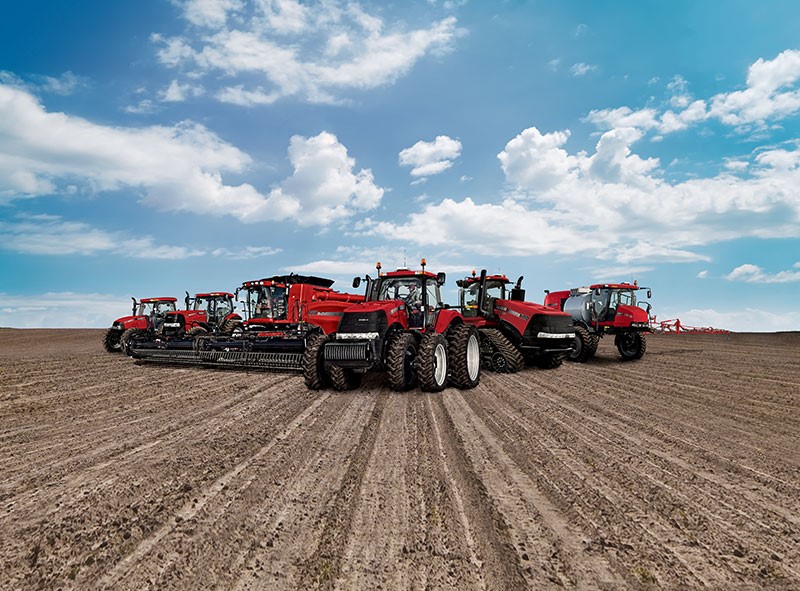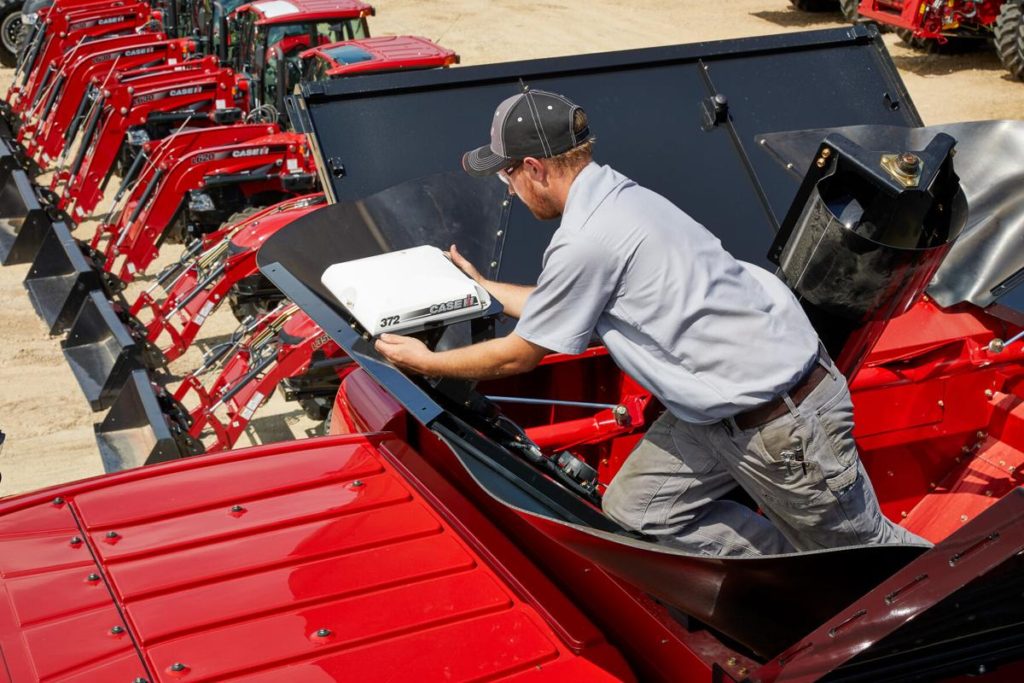
Technology is as important to today’s farm machinery as the nuts and bolts that held old-school equipment together back in the day. Maintaining your machines is a never-ending task when it comes to farming. When you’re lubricating moving parts, changing filters, or checking bearings, don’t forget to keep the technology that runs your machinery up to date.
Just like the typical equipment maintenance farmers all know and love (and occasionally hate), the technology the runs your machines need a regular tune-up as well. Technology advances quickly, and farmers have to be just as quick to keep up, which can sometimes be an overwhelming task.

“As technology advances, you have to keep up to date with the software upgrades,” says Chris Ehman, Case/IH Aftermarket Solutions marketing manager. “That becomes even more true now as 3G is either going away or gone for good, depending on a farmer’s location. That’s why it’s even more important to get connected than before now.”
The new technology brought massive changes to the way farmers run their operations. For example, modern technology now gives farmers instant access to every machine in their fleet.
“The new technology in the CASE/IH Connection Portal frees up farmers to do their work, share data, and to manage their fleet wherever, whenever, and however they want,” he said. “It allows you to gather that data throughout the year and easily visualize what’s happening in your fields.”
The technology gives farmers a better grip on optimizing the performance of their fleet. Computerization helps Case IH owners of equipment made in 2010 or newer the chance to coordinate all of their machines and share their data to a central computer.
“Farmers can see each machine’s data as it’s running, including the location, the machine’s status, engine hours, idle time, acres per hour, and fuel levels,” he said, “so it helps them better track of what the operators are doing with the machines.
“Another way the technology helps farmers is with the security of their machines,” Ehman added. “It can set up geofences and curfews. With geo-fencing technology, you can set up pre-defined working areas for your machines and get alerts if they leave that specific area. And the curfew setting will alert you if the machine is working outside of a pre-defined timeframe. It gives you a lot of peace of mind at the end of every day.”
And if you’re one of those who don’t consider yourself “technologically efficient,” the software will help you know when it’s time to update. You’ll notice error codes and alerts that will get sent via the tech portal.
“That alert will help you understand what’s happening with your equipment out in the field,” Ehman said. “It will help you decide if it’s a simple setting that needs to be adjusted and can get fixed over the phone, or if a tech will instead need to make a trip to the field. If a tech support worker doesn’t need to come out and fix the issue, taking care of it over the phone can be a real time and money-saver.
“And if a tech is needed, they’ll have a much better understanding of what the issue is and what’s needed to fix it,” he added. “That makes the repair move at a quicker pace and gets the machinery back into operation and making money for the farmer. Quicker repairs, less money, and more uptime is always a good thing.”
At the end of the day, Ehman said farming is one of the most challenging occupations in the country. There’s a lot at stake and many difficult decisions to make. The agricultural economy has struggled in recent years, and farmers need success this year without question.
“A profitable operation is possible, and these new technologies help make that happen,” he said. “You don’t have to wait to benefit from the advantages of the new technologies. The equipment you already own can be capable of so much more than you may realize.”
Data protection is a big deal for farmers, and Ehman says companies like Case IH are taking good care of that vital information. The company is upfront in saying that farmer’s data belongs to each individual farmer and that farmer alone.
“For our dealers and our partners to access that data, they have to get permission from the farmers,” Ehman said. “That is a move in the right direction for Case IH as a company and a brand.
“The technology we use to analyze that data has come a long way as well,” he adds. “We’ve gotten much better at collecting and aggregating the data from multiple machines on the operation, and then overlaying that with yield data and field maps to allow farmers to see all the conditions that may be affecting their yield. It’s moving past the machinery data and into more of the farming and agronomic data.”
Any farmer can then use that data to help improve their yields and return on investment. A 4G update will get farmers into the Case IH Connect Portal with an AFS Connect subscription. That will let farmers take advantage of the new 4G technology and the benefits that come with it.
